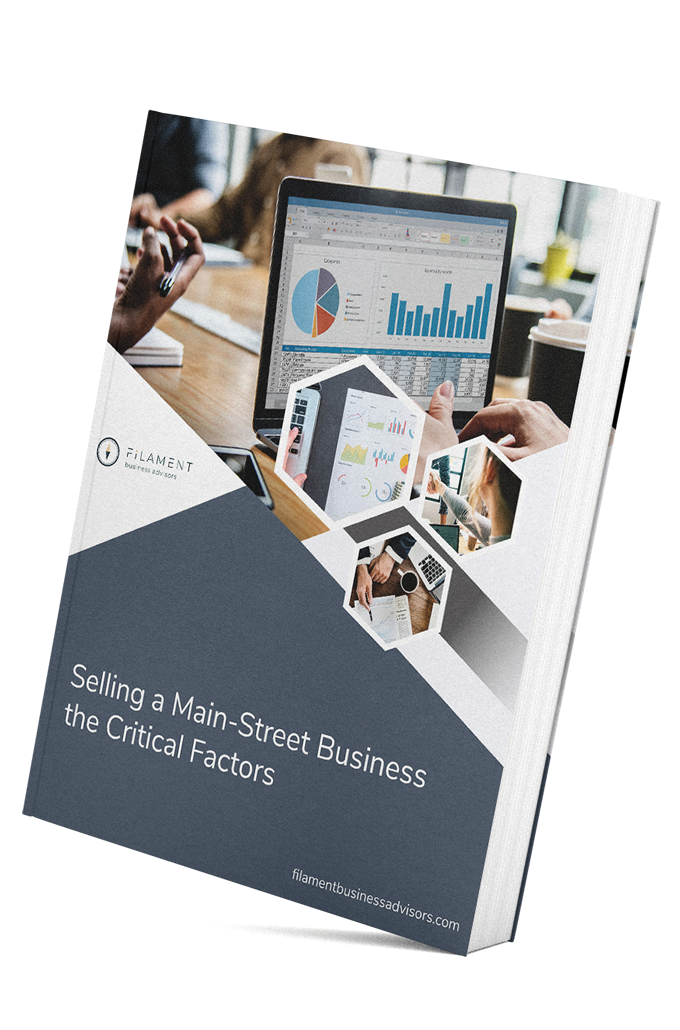
7 Essential Questions to Ask Before Buying a Business
Buying a business is a significant investment that requires careful consideration. To make an informed decision and reduce risks, you need to ask the right questions. Below are seven essential questions every buyer should ask before finalizing any deal. These will help you understand the business’s true value along with potential risks.
1. What Are the Biggest Challenges the Business Is Facing?
Understanding the current challenges the business is facing is vital. Whether it’s cash flow problems or potential competition out there in the market, knowing these challenges allows you to assess the level of effort that will be required. It can also give you insight into potential opportunities for improvement and growth after the acquisition.
2. How Did You Arrive at the Asking Price?
It’s a good idea to understand how the seller determined their asking price. Was it based on straightforward financial metrics like revenue and assets? Or was there some other rationale? You need to figure out if the asking price is fair, and you’ll certainly want to know if there’s room for negotiation.
3. Are There Any Legal Issues or Pending Lawsuits?
Lawsuits or legal disputes can have a significant impact on the business’s value and your future responsibilities. Ask if there are any ongoing or potential legal issues, such as lawsuits, intellectual property concerns, or other legal challenges. This will help you avoid future complications and unexpected costs that could arise post-sale.
4. How Well Are the Business’s Financials Documented?
A business’s financial health is the cornerstone of any successful transaction. Ask how the seller documents the business’s financials. Are the records clear and organized? Request to see tax returns, profit and loss statements, and balance sheets for at least the last three years. Well-documented financials ensure transparency and will help you make an informed decision.
5. What Skills or Expertise Are Required to Run the Business?
Every business requires a unique skill set to operate effectively. Before moving forward, consider whether you have the skills, experience, and knowledge to run the business. If not, are you prepared to hire or train someone who can fill that gap? Understanding the skill requirements will help you assess whether the business is a good fit for you.
6. How Dependent Is the Business on Key Customers or Vendors?
A business that relies heavily on a small number of customers or vendors can be risky. Losing one or more key clients or suppliers could significantly impact the bottom line. Ask about the business’s customer base. If a few clients account for a large percentage of revenue, it’s essential to evaluate the risk of losing those relationships.
7. What Will Happen to the Employees After the Sale?
Employees are often a key asset in a business. Before buying, ask what will happen to the employees after the sale. Will they stay on? If so, will their roles, salaries, and benefits remain the same? Understanding the status of the staff is critical for a smooth transition.
Asking these seven essential questions will help you uncover critical details about the business you’re considering purchasing. The more information you gather, the better prepared you’ll be to make an informed decision, minimize risks, and ensure that your new acquisition is a sound investment. This process will help you avoid headaches down the road.
Copyright: Business Brokerage Press, Inc.
The post 7 Essential Questions to Ask Before Buying a Business appeared first on Deal Studio.

The Power of Employee Engagement: Why It Matters for Your Business
Your employees are more than just part of your team. Employees are the driving force behind your business’s success. If you want your company to thrive, the happiness and satisfaction of your employees should be a top priority. An unhappy workforce can lead to negative energy that makes its way into customer interactions. Ultimately, your bottom line may begin to suffer. Investing time and effort into creating a positive workplace environment will pay off in many ways.
Hiring the Right Fit
The foundation of employee satisfaction starts with your hiring process. When bringing on a new team member, you’re starting a relationship that will impact your company in many ways.
It’s important to write job descriptions that accurately reflect the role and make the position attractive to the right candidates. It’s also crucial that anyone involved in hiring is trained to follow best practices. This will ensure a smooth and professional recruitment process. They will be the first person your new employees will encounter, and that means that they set the tone from day one.
How to Keep Employees Engaged and Happy
Once you’ve built your team, it’s essential to actively think about their satisfaction. Never just assume that employees will naturally stay motivated or invested in their work. It’s your responsibility to ensure they feel valued, appreciated, and driven to contribute.
Here are some actionable steps you can take:
- Provide competitive salaries and benefits
- Recognize their achievements
- Offer rewards like bonuses or public recognition
- Give employees time off for birthdays and vacations
- Seek employee feedback
- Offer opportunities for career growth
- Encourage relationships among your staff members
When employees are happy and engaged, their positivity will positively impact customers. Satisfied employees not only tend to stay with the company longer, but they also become more motivated. This will lead to increased productivity and a stronger bottom line.
Copyright: Business Brokerage Press, Inc.
The post The Power of Employee Engagement: Why It Matters for Your Business appeared first on Deal Studio.

3 Meeting Tips for Buyers and Sellers in Business Transactions
When buying or selling a business, the initial meeting between the buyer and seller can be a critical turning point. This meeting often sets the stage for the future of the deal. After all, the buyer’s first offer typically arrives right after this pivotal discussion. Ensuring that the conversation is positive, professional, and productive is crucial for both parties involved. Business brokers and M&A advisors play an essential role in preparing both buyers and sellers to navigate these discussions successfully.
For buyers, it’s important to have a clear understanding of how the selling process works and what to expect during the meeting. Heeding the advice of their broker is key, as it helps maximize the chances of favorable outcomes.
On the seller’s side, transparency is vital. Sellers should aim to be open and honest without being too heavy-handed. A balanced approach that fosters trust is far more likely to yield results.
Ask Thoughtful Questions
For buyers preparing to meet with a business owner, it’s important to ask relevant questions. A buyer who asks well-researched and meaningful questions will demonstrate a genuine interest in the business. This not only builds credibility but also helps establish a foundation for mutual respect.
Buyers should come to the meeting prepared. They should be sure to do their homework in advance. This can mean everything from reviewing financials and gaining an understanding of the industry to identifying potential risk. These actions will help create a positive impression and lay the groundwork for a productive conversation.
Build a Rapport
Throughout the meeting, buyers should maintain a polite, respectful demeanor. It’s best to steer clear of controversial topics like politics or religion, as these can easily lead to unnecessary conflict. The goal is to foster a relationship based on trust and professionalism. If a seller doesn’t like or trust a buyer, it could create obstacles that prevent the deal from moving forward.
Sellers often view their business as a personal legacy, a culmination of years or even decades of hard work. This emotional attachment means that buyers should approach the meeting with a degree of sensitivity. They should understand that the business represents more than just a financial transaction. A failure to acknowledge the seller’s emotional investment could harm the relationship and that could lead to jeopardizing the deal.
Embrace Honesty
While sellers are seeking to sell their business, they should avoid presenting themselves as overly sales-focused. Buyers appreciate authenticity and transparency, so sellers should strive to present their business honestly. That means sharing both its strengths and its challenges.
It’s also essential for sellers to acknowledge the competitive landscape. Every business faces competition, and attempting to downplay or ignore this reality will likely raise red flags. A truthful approach is far more likely to foster trust and lead to a successful transaction.
The Role of Brokers and Advisors
Ultimately, business brokers and M&A advisors are invaluable throughout this process. They guide both buyers and sellers in preparing for the meeting and help set realistic expectations. By working closely with both parties in advance, brokers ensure that the discussion is as constructive as possible, improving the likelihood of a positive outcome. With proper preparation and expert guidance, both sides are more likely to walk away with a successful agreement.
Copyright: Business Brokerage Press, Inc.
The post 3 Meeting Tips for Buyers and Sellers in Business Transactions appeared first on Deal Studio.

5 Questions to Ask Before Purchasing a Global Business
Purchasing a business abroad involves unique challenges and factors. There are considerations to keep in mind that you typically won’t face when buying a local business. The decision to invest internationally is complex and influenced by various elements. Let’s take a look at some of the best practices for anyone looking to buy a business in another country.
What Can You Learn Through Research?
The first thing to do before making a decision is to thoroughly research similar businesses in the country you’re considering. While you may be well-versed in a specific industry or business model in your own country, the landscape may be entirely different elsewhere. Operating the same type of business in another nation could come with unexpected hurdles, so it’s best to get a lay of the land as soon as possible.
It’s essential to understand the local market and business environment to ensure your success. The approach that works in your home country might not apply in the same way abroad, so it’s critical to learn from other businesses operating in that region. This research could be the determining factor between thriving and struggling in your new venture.
Will You Relocate?
Another important choice is whether to move to the country and run the business yourself or hire a local manager to take the reins. Each option has its advantages and drawbacks. Relocating to oversee the business firsthand is a significant personal commitment and may change your lifestyle in a way that you’re not prepared for. However, this shift could either help or work against your business depending on your own circumstances.
Will You Hire Someone on the Ground?
If relocating doesn’t seem like the right move for you, hiring an experienced and trustworthy local manager might be a good alternative. Of course, entrusting the business to someone else comes with risks, so finding a reliable manager who understands the local market and has a proven track record is a good idea.
What are the Cultural Differences?
Cultural differences are another critical consideration when buying a business abroad. Ignoring or underestimating these differences can lead to costly mistakes and even jeopardize the success of the business. Cultural nuances will impact everything from customer relations to staff management, so it’s essential to gain a deep understanding of how these differences will affect your operations.
Additionally, language barriers can pose a significant challenge, so it’s important to be mindful of how not speaking the local language could affect your business.
Who Can Assist You?
Equally important is understanding the local regulatory environment. Legal and tax requirements can vary significantly between countries and regions. Not being well-versed in these regulations could result in serious consequences. It’s wise to partner with local experts who can help you avoid potential pitfalls related to taxes, and other legal issues that may arise.
Lastly, working with an experienced business broker or M&A advisor is one of the best ways to safeguard yourself when buying an international business. These professionals bring invaluable expertise to the table and can connect you with a network of global resources and specialists. Their knowledge and connections can be essential in helping you navigate the complexities of international business transactions.
Copyright: Business Brokerage Press, Inc.
The post 5 Questions to Ask Before Purchasing a Global Business appeared first on Deal Studio.

Top Four Reasons Why Buying an Existing Business May Be Smarter Than Starting One from Scratch
When people dream of becoming business owners, they often picture launching their own venture. They may picture building something from nothing, and the fulfillment of turning a concept into a company. While exciting, this path comes with plenty of hurdles, which include creating brand awareness, finding customers, hiring a team, and generating consistent income. Keep in mind, launching your own business means you must achieve these goals with no foundation.
For those looking to skip the steepest parts of that learning curve, acquiring an existing business can be a more strategic move. Let’s take a look at why purchasing a company that’s already up and running can offer advantages:
You’re Buying a Running Operation
An established business already has momentum. There’s a proven product or service and a loyal customer base. In other words, operations that are already in motion. The office or storefront is likely equipped and staffed, and the brand has some level of local or industry recognition. The operating history that comes with an independent existing business should not be underappreciated.
Existing Relationships Mean Built-in Value
Relationships are a form of currency in the business world. When you buy an existing operation, you’re also gaining access to its network of customers, suppliers, service providers, and possibly even long-term employees. These relationships take years to build. This means that otherwise they would be tough to replicate from scratch.
Even if you don’t already have connections in banking, legal services, marketing, or other essentials, chances are the previous owner does—and many of these beneficial relationships can be simply passed along as part of the sale.
Proven Financial Track Record
Launching a new business is always a gamble. This is true no matter how detailed your business plan may be. But with an existing company, you’re buying into something that already has a performance history. You can analyze real numbers: revenue trends, operating costs, profit margins, and more. This level of transparency reduces guesswork and helps you make a more informed investment.
Even better, most sellers are open to training and transitional support, often at no additional cost. They want the business to succeed under new ownership. If they’re financing part of the deal, this is even more true.
A Defined Price Tag and Financing Options
When you buy an ongoing business, you can rest assured that there is an established value. You’re not endlessly sinking money into branding, equipment, or infrastructure. The purchase comes with a set price.
Further, many sellers are open to structuring a deal that includes a down payment and owner financing, which benefits both parties. You get to spread out payments, and the seller maintains a financial interest in the success of the business. That means that they are essentially putting their confidence in its continued profitability.
If the seller offers to finance part of the purchase, that’s more than just a payment plan—it’s a vote of confidence. They’re signaling that the business is profitable and sustainable enough to cover its own costs and pay them back.
The bottom line is that if you’re ready to own a business, don’t overlook the advantages of taking over one that’s already thriving. A business broker or M&A advisor can help you properly vet the business in question and get you on the path to successful ownership.
Copyright: Business Brokerage Press, Inc.
LIGHTHOUSE STUDIOS INC/BigStock.com
The post Top Four Reasons Why Buying an Existing Business May Be Smarter Than Starting One from Scratch appeared first on Deal Studio.

Key Considerations Before Buying a Business
When considering the purchase of a business, asking the right questions is essential. Whether you’re a first-time buyer or a seasoned entrepreneur, you’ll want to avoid unpleasant surprises down the line. One way to do that is to be proactive and diligent when you’re making your evaluations. Below are some critical areas to explore before signing any agreements.
First, it’s important to understand the current challenges that the business you’re interested in may be facing. Every business has its pain points. By asking the seller to share these openly, you can better prepare for potential hurdles. Gaining insight into any prospective difficulties can also shed light on areas where you might be able to improve operations or take advantage of opportunities for growth.
Another important consideration is to ensure financial transparency in the transaction. Sellers should provide comprehensive and accurate financial details, including profit margins, revenue streams, and expenses. Transparent financial information allows buyers to make informed decisions, assess the true value of the business, and identify any potential risks. By demanding financial transparency, you can ensure that the business’s valuation is accurate and justified, which is crucial for establishing trust and confidence in the transaction.
Along with financials, it’s obviously essential to examine the business’s legal standing. You should inquire about any past, current, or potential lawsuits that might be attached to the business. Legal issues can have long-term implications, so it’s essential to know if there’s any risk of future complications. Don’t assume that you’ll find out about these kinds of issues if you don’t do due diligence.
The business’s operations are also worth scrutinizing. It will help you a great deal to learn how day-to-day operations are documented. This information can help you assess how smoothly you can take over. If the business in question has clear and organized procedures, this will help make the transition easier. Additionally, you’ll want to evaluate how much the business relies on specific vendors or customers. If a significant portion of revenue depends on one source, this could pose a risk if circumstances change.
A business should align with your strengths to ensure long-term success. That’s why you’ll want to have a firm grasp of the skills and experience needed to run the business. This information will help you understand whether you really are the right fit for the business or if there are areas where you might need additional support.
Finally, it’s important to have a clear picture of the workforce. Will key employees stay with the company? Employee stability is vital for maintaining the ongoing success of the business after you take over.
Asking thorough questions and gaining a deep understanding of the business will empower you to make an informed decision. The more you know about the challenges and opportunities, the better prepared you will be to navigate the acquisition successfully. Every business has some risks, so it’s your job to find out what they are. By being diligent, you reduce the likelihood of headaches down the road. Asking questions proactively will help you reach greater levels of success.
Copyright: Business Brokerage Press, Inc.
The post Key Considerations Before Buying a Business appeared first on Deal Studio.

Unlocking Your Potential Through Business Ownership
As a business owner, you gain freedom and the potential to earn more than you might otherwise earn. If you are ready to tackle the hard work involved in business ownership, you may be prepared to take the next step. Two main advantages to being a business owner include forging ahead with more freedom and also boosting your income. However, you must be prepared to take some risks.
Grow Your Income
Owning your own business gives you the opportunity to grow your income. While owning a business can dramatically boost your income, this typically comes with both increased risk and more work.
Generally, the longer a business owner maintains their business, the greater the potential for profits. Business owners who have operated their businesses for ten years or more generally earn over $100,000 per year. It’s important to remember that it may take years before you achieve the income level you desire. Building a successful business takes time, and increasing the profits of an existing business can also require significant effort. Regardless, being a business owner gives you much greater control over your financial destiny.
Determine Your Lifestyle
Owning a business also grants you control over your lifestyle. Working for someone else often means sacrificing some degree of freedom. Employees are typically required to show up for work at specific times and adhere to set hours. As an employee, you must abide by various rules and regulations established by your employer. In contrast, being a business owner allows you to choose when and how you work. You establish the rules and can manage your time and life in ways that an employee simply cannot.
Are You Ready?
One of the most crucial factors in determining your readiness to own a business is your willingness to assume some risk. Simply put, there is no way to be a business owner without dealing with risk. Owning a business is not the same as working for one; your fate is in your own hands, which means accepting at least a modest degree of risk.
Of course, not all businesses succeed, and it’s essential for prospective business owners to understand that, despite the money, time, and effort invested, a business may still fail. By carefully considering what kind of business is right for you and working closely with a business broker or M&A advisor, you can significantly increase your chances of selecting a business that aligns with your personality, needs, and expectations.
Being a business owner means you are ready to take both action and responsibility. You must be forward-looking, seek out opportunities, and be willing to assume risks. A business broker or M&A advisor can be an invaluable ally in determining whether you should become a business owner and helping to identify the right business for you.
Copyright: Business Brokerage Press, Inc.
The post Unlocking Your Potential Through Business Ownership appeared first on Deal Studio.

Strategic Negotiation: Essential Tactics for Deal Success
Negotiation can evoke a range of feelings: some people thrive on it, others dread it, and many fall somewhere in between. Regardless of your stance, the ultimate goal remains the same: to emerge successfully from the negotiation. Mastering effective negotiation methods and tactics can give you an edge where others might falter. The objective is to close deals effectively. Here are three negotiation strategies that have been proven to close more deals.
Leverage the Experts
One common belief is that you should never negotiate your own deal. Business owners are often too emotionally invested in their businesses, which can cloud their judgment. Buyers can also become overly emotionally attached. Engaging a professional business broker or M&A advisor can be a strategic move toward achieving a favorable outcome. A professional broker not only knows what constitutes a fair price but also understands the many factors that influence the negotiation.
Take it or Leave it
Another strategy to consider is the “take it or leave it” approach. In this method, the buyer presents their offer, the seller makes a counter-offer, and then the negotiation ends. The seller maintains their position and hopes for the best. This approach carries risks, as showing some flexibility can often lead to a successful deal. While the “take it or leave it” strategy can be high-risk, it also has the potential for high rewards. An experienced brokerage professional can assess whether this strategy is appropriate based on factors such as the business’s appeal to future buyers.
Addressing Variables
A third approach involves focusing on the most important variables for both the buyer and the seller. Understanding what matters most to both parties can be crucial in crafting a successful deal. It’s important to remember that key issues aren’t always financial; they might include commitments to retaining key employees or allowing a relative to remain involved with the business. Recognizing the complexity of buying a business and addressing these variables can facilitate a smoother negotiation process.
Reaching a Compromise
Finally, consider the strategy of splitting the difference. It’s essential for both buyers and sellers to avoid letting ego derail the deal. Quibbling over minor differences in a multi-million-dollar transaction is usually counterproductive.
Offering to meet halfway between the seller’s asking price and the buyer’s offer—provided the disparity isn’t too large—demonstrates goodwill and flexibility. By proposing to split the difference, you reduce emotional tension and show that you value reaching an agreement.
In dealmaking, don’t be afraid to think creatively. Every business, buyer, and seller is unique, and each deal presents its own challenges. A skilled business broker or M&A advisor will evaluate each situation on its own merits, rather than adhering to a rigid formula.
Copyright: Business Brokerage Press, Inc.
The post Strategic Negotiation: Essential Tactics for Deal Success appeared first on Deal Studio.

Why Business Brokerage Professionals Use Term Sheets
Term sheets are invaluable in that they can serve as a point of orientation during negotiations. Thanks to term sheets it is possible to keep everyone involved, focused and on target.
What is a Term Sheet?
These nonbinding agreements detail the basic terms and conditions of a deal. It is different from a legally binding agreement, so it is often misunderstood by buyers and sellers. However, the term sheet serves the purpose of moving a deal along and helping both parties to get on the same page.
A term sheet can be thought of as a preliminary proposal that contains a range of information that is essential to the deal. A well-crafted term sheet includes more than the price, as it also includes key terms and any major considerations, such as employment agreements, consulting and more.
In Russ Robb’s book, “Streetwise Selling Your Business,” Robb concluded that a term sheet serves to include the price range along with the basic structure of a deal. Importantly, Robb also notes that a term sheet will include whether or not any real estate is included in the deal.
There are other ways of thinking about a term sheet. Author and attorney Jean Sifleet once stated that a term sheet should clearly answer the four all-important questions of: Who? Where? What? And, last but not least, How much?
The Importance of Customization
The goal of any negotiation should be to achieve a win-win for everyone involved. In order to achieve that win-win environment, it is helpful to avoid lawyers, accountants and other advisors who overutilize boilerplate documents or who use adversarial tactics or adopt extreme negotiation positions.
Putting it in Writing
Once a verbal agreement has been reached on the important variables of price and terms, it is critical to put that agreement in writing. It is through this information that the process can move on to the next stage and a more formalized letter of intent can be created. It is important to remember that the term sheet is designed to help both parties and can be used to help a deal take its final form.
Term sheets are an extremely useful and time-saving tool. They orient the thinking of all parties involved in the process and help cultivate a clearer understanding of what the final agreement will look like. Through term sheets, it is possible to avoid misunderstandings and last-minute surprises, which often sabotage deals.
Copyright: Business Brokerage Press, Inc.
The post Why Business Brokerage Professionals Use Term Sheets appeared first on Deal Studio.

Navigating Due Diligence: Essential Steps for Successful Business Transactions

There is no denying the satisfaction that comes with obtaining a signed letter of intent from both the buyer and seller. However, it’s crucial to recognize that due diligence has yet to be completed. No deal is final until the seller undergoes this process and commits to proceeding.
In Stanley Foster Reed’s insightful book, The Art of M&A, Reed emphasizes that the goal of due diligence is to “assess the benefits and liabilities of a proposed acquisition by investigating all relevant aspects of the business’s past, present, and foreseeable future.” Reed highlights the importance of thoroughly examining every aspect of a business and its potential trajectory.
Due diligence is inherently comprehensive, and it’s no surprise that many deals falter during this critical stage. Therefore, it is prudent for both buyers and sellers to consult with key team members, such as lawyers and accountants, before embarking on due diligence.
Reviewing All Aspects of a Business
There are numerous factors that buyers and sellers should consider before initiating due diligence. A checklist addressing these areas is essential. For instance, accounts receivable should be scrutinized to identify outstanding debts. Similarly, inventory should undergo thorough examination.
Environmental concerns, often underestimated by sellers, can derail a deal swiftly. Issues such as lead or asbestos contamination, or water pollution, require careful assessment due to potentially substantial remediation costs and time commitments.
If the business holds trademarks, patents, or copyrights, these valuable assets must be properly documented and their transferability confirmed. They are critical to the business’s current and future value.
The strength of any business lies in its key employees and management. Sellers should evaluate their team for any weaknesses, while buyers must gain a comprehensive understanding of the workforce. Over-reliance on the owner or key personnel can signal risks.
For example, in manufacturing, it is imperative to evaluate all aspects of the production process. The condition of equipment, its anticipated lifespan, efficiency, and overall value are crucial considerations. Identifying key suppliers and assessing their reliability is equally essential.
Due diligence is pivotal for buyers to comprehend the true nature of the business being sold. Sellers can leverage this process to highlight their business’s strengths and address any weaknesses.
Through due diligence, stakeholders can gain insights into critical factors, such as the company’s competitive edge, long-term potential, status of team members, customer and supplier relationships, and more. Business brokers and M&A advisors are well-versed in every facet of due diligence and can guide stakeholders through this complex process.
Copyright: Business Brokerage Press, Inc.
The post Navigating Due Diligence: Essential Steps for Successful Business Transactions appeared first on Deal Studio.










